Varanasi: Rickshaws and Ghats; Boat Rides On the Ganges
An afternoon flight has brought us to Varanasi (also sometimes known as Benares), the "City of Light". Considered India's holiest city by Hindus, Varanasi is sanctified by the constant presence of Shiva, and by the sacred waters of the Ganges. Hindus also consider Varanasi to be the best possible place to die, as it is believed to bestow instant salvation or moksha (liberation from the cycle of birth and death). Many religious Hindus come to Varanasi with the express goal of dying here.
The Ganges River is itself worshipped as a living goddess, with the power to cleanse earthly sins, so Hindus also come to Varanasi to bathe in it. The western shore of the Ganges at Varanasi is paved continuously with ghats (stairs) which provide convenient access to the river's edge. Ghats are used for bathing, washing laundry, carrying out rituals, accessing boats, and being cremated, among other things.
We begin our visit to Varanasi with an evening boat ride on the Ganges. The area near the ghats is heavily congested with narrow streets and throngs of people, so our bus parks at a distance and we use rickshaws to get the rest of the way to the ghats of the Ganges.
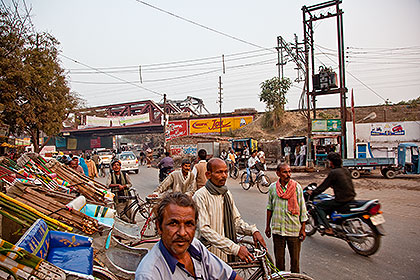
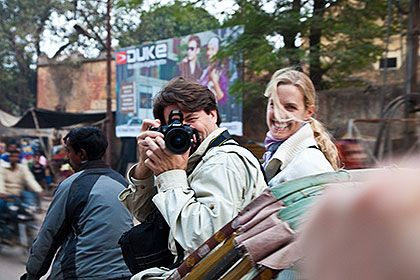
Drivers with their rickshaws await passengers (upper left). When we are all seated the ride begins. George and Susan are in the lead, and George snaps a photo of me from their rickshaw as we begin threading our way through the streets (below), which get narrower and more crowded as we get closer to the ghats.
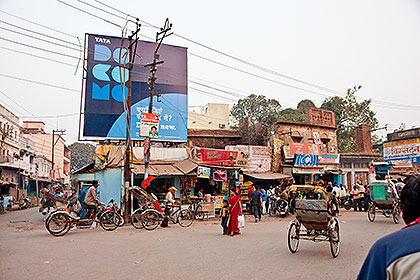
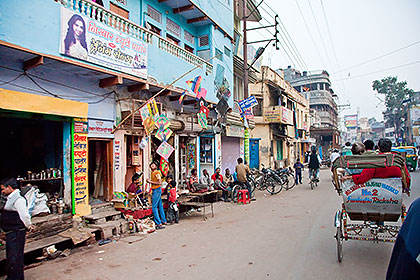
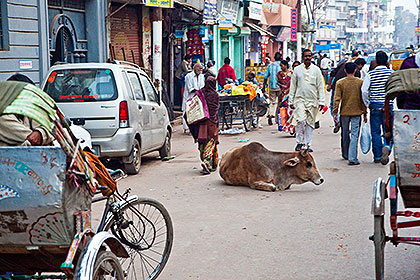
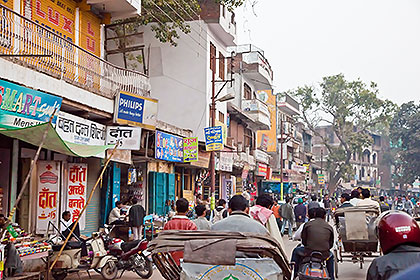
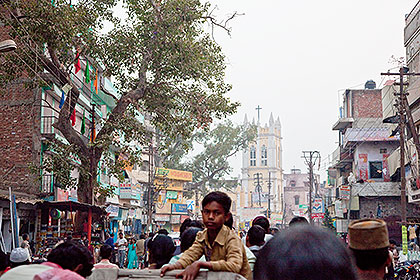
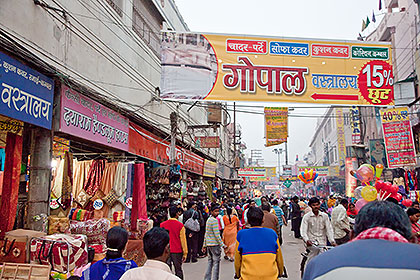
Evening Boat Ride on the Ganges
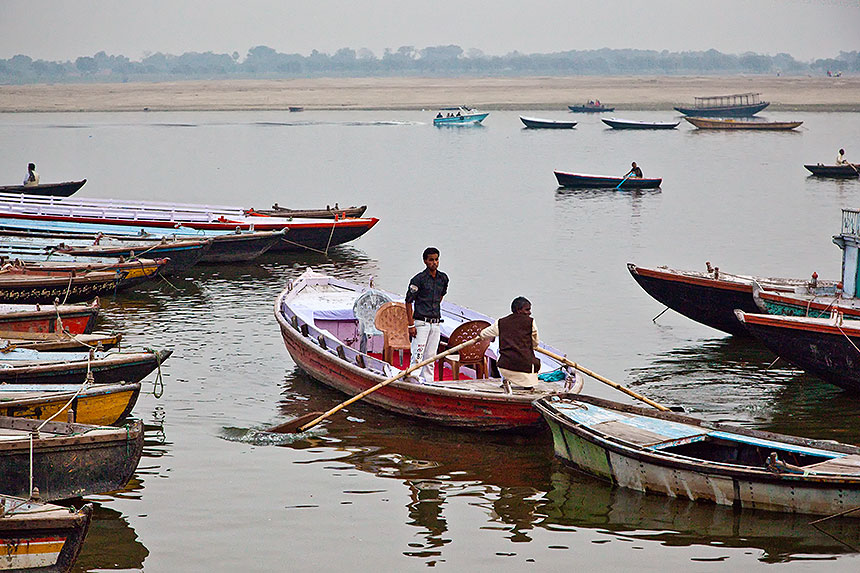
Reaching the Ganges we find plenty of boats awaiting passengers. People are also gathering on the ghats for evening aarti (prayers), a ceremony we will witness from the water here at the Dasashvamedha Ghat. We board our boat at 5:20PM, as dusk approaches (lower right).
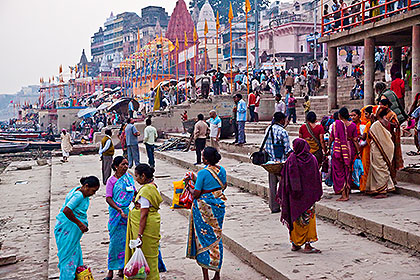
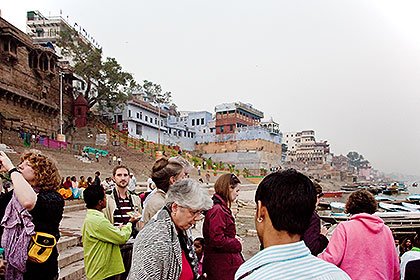
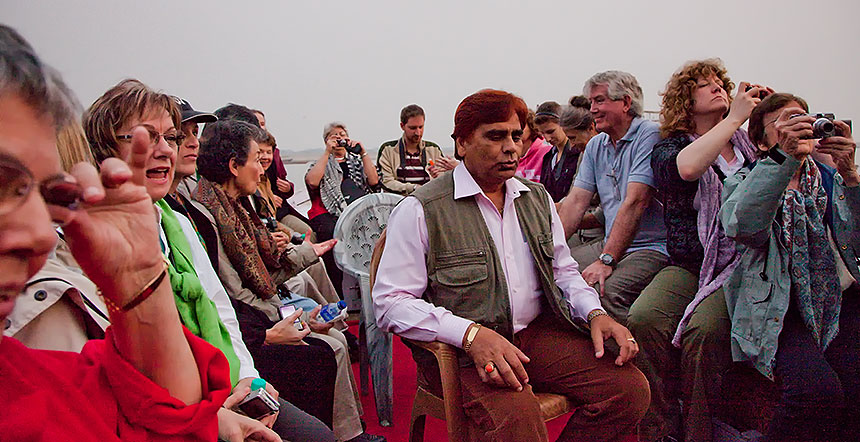
Our national guide Madan is enthroned at the center of our boat.
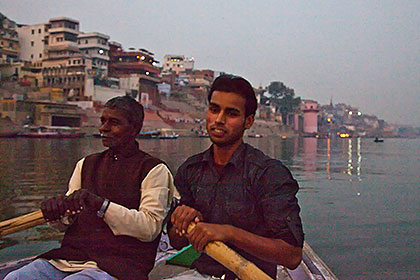
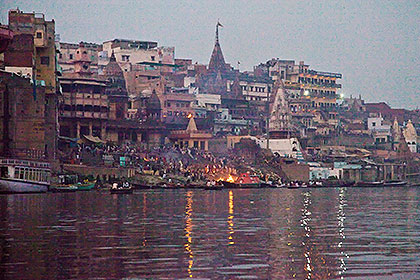
Our rowers (left) start by taking us downstream to the Manikarnika and Scindia Ghats. The Manikarnika Ghat is one of Varanasi's two cremation ghats, where fires burn day and night (above right, and below). The Scindia Ghat has a half-submerged temple that we will see tomorrow morning.
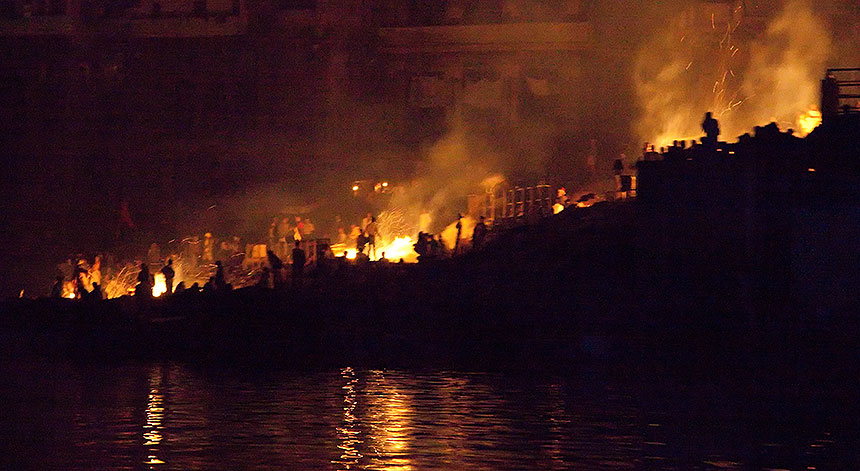

We come back upriver to the Dasashvamedha Ghat, Varanasi's holiest spot, where the Aarti Ceremony gets underway. Use the slider to pan across the panoramic view above to see priests under seven illuminated parasols chanting sacred mantras, ringing bells and offering oil lamps to Shiva. Onlookers are both on shore and in boats. Many of those on the river set tiny oil lamps free to float downstream (below right).
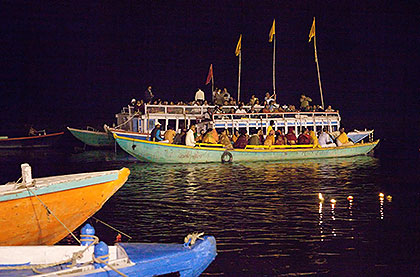
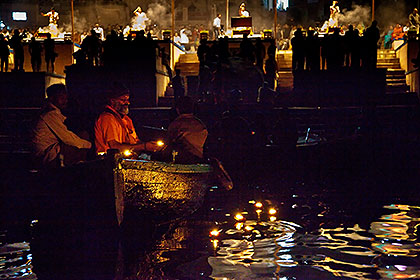
Morning Boat Ride on the Ganges
We are back at the river at 6AM to see the sun rise over the Ganges, and to see more of the ghats and the morning activities along them.
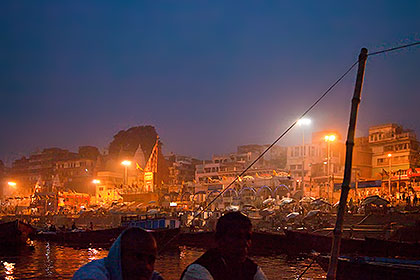
We embark at the Dasashvamedha Ghat again, going upriver this time.
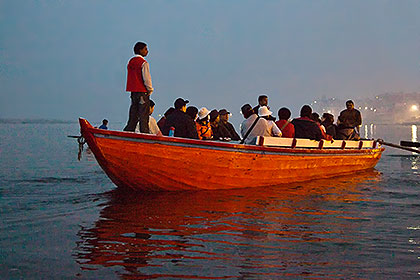
Plenty of others are here already too. The sun has not yet risen.
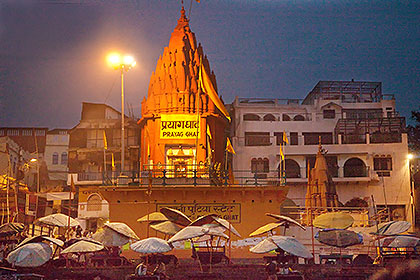
This is the Prayag Ghat.
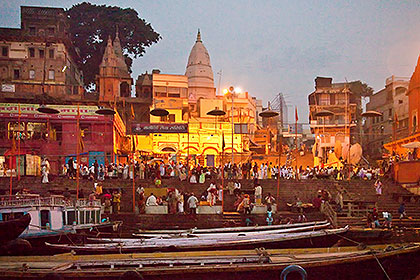
The Ahilyabai Ghat.
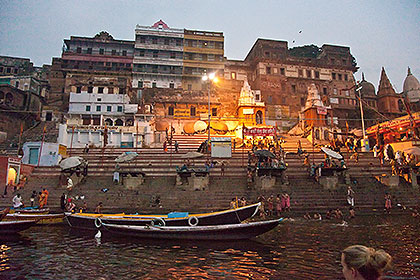
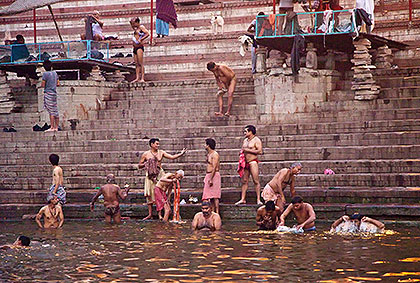
Bathers at a ghat between the Ahilyabai and Munsi Ghats.
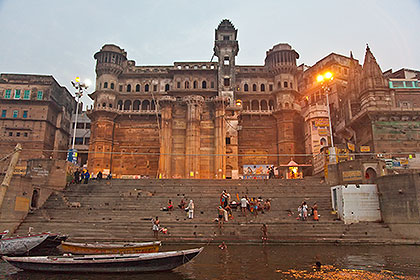
The Darbhanga Ghat.
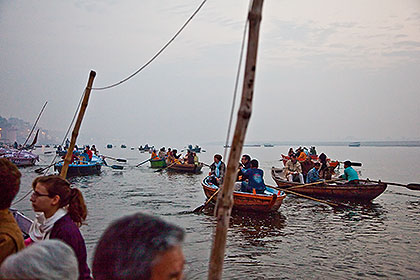
More and more people are on the water, but the sun hasn't risen yet.
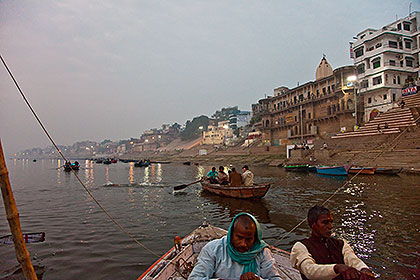
Our rowers continue to take us upstream.
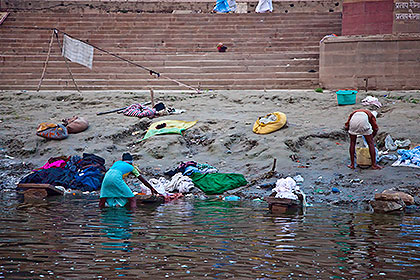
Washing laundry in the river.
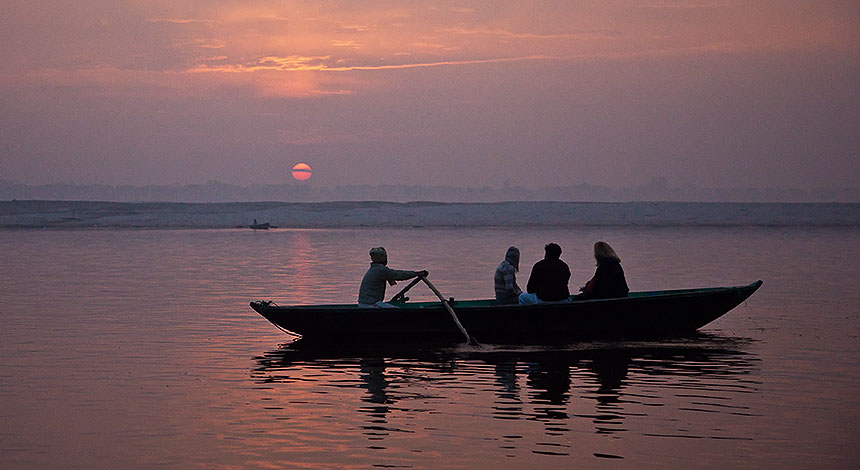
Now the sun rises. It is 6:45AM.
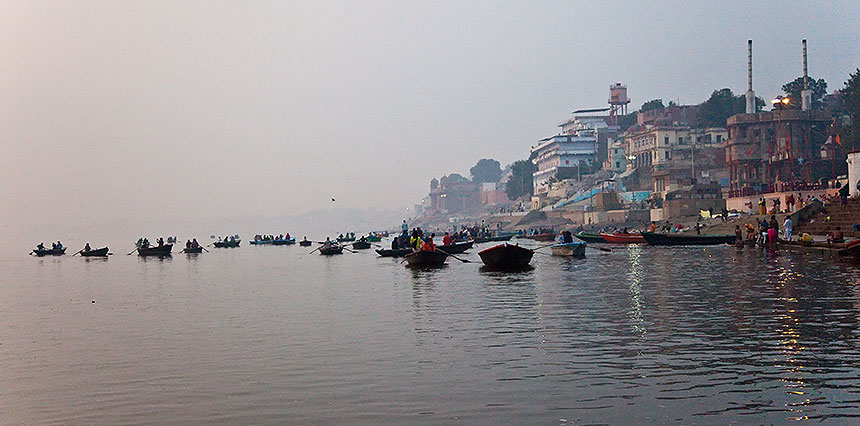
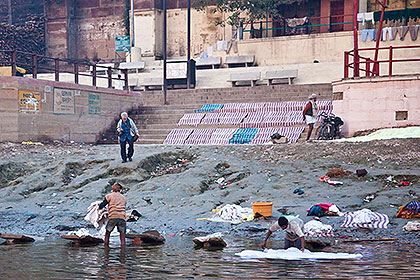
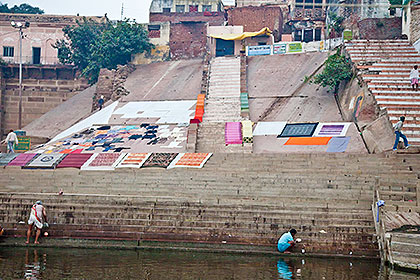
More laundry being washed in the Ganges. Early in 2010 the authorities prohibited this practice, as part of a project to clean up the river.
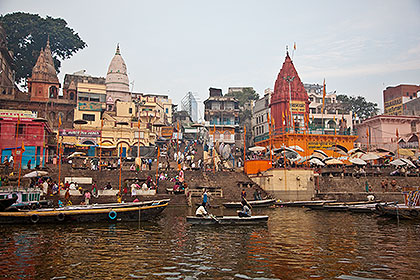
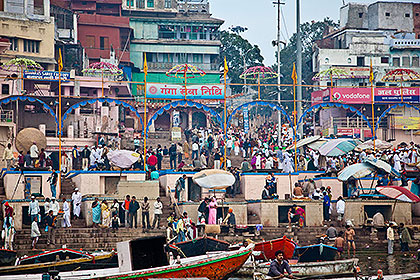
We have drifted back downstream to the Ahilyabai and Prayag Ghats. Next door at the Dasashvamedha Ghat, crowds are building. It is 7:20AM.
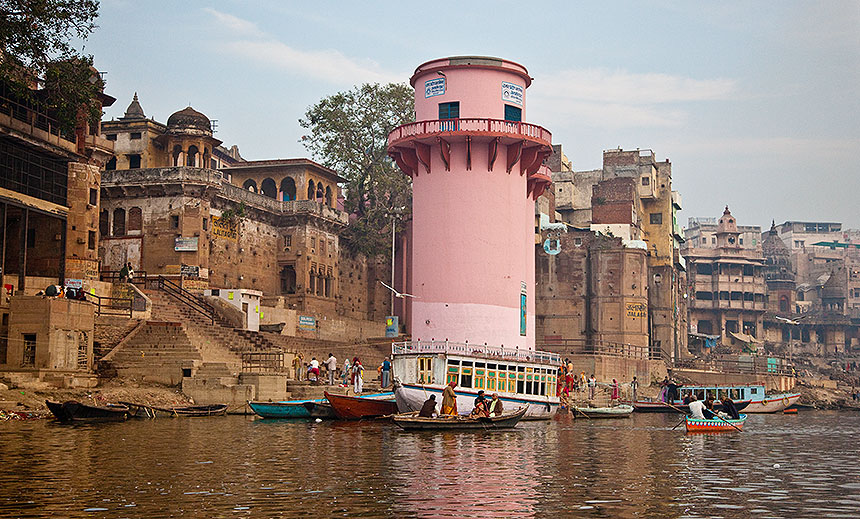
The Nepali Ghat has a big water tank by the river. It is very pretty in pink, we think.
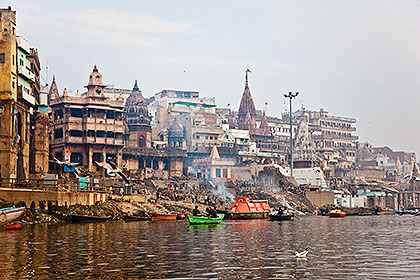
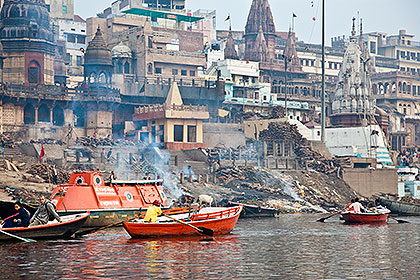
At the Manikarnika Ghat, a few cremation fires are burning this morning. Note the red fireboat that is kept on standby here.
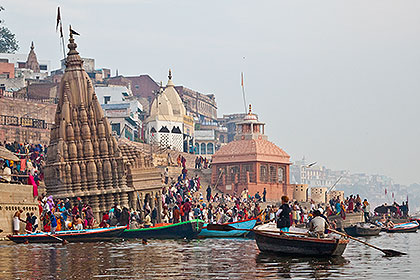
Scindia Ghat, where a half-submerged old temple leans precariously.
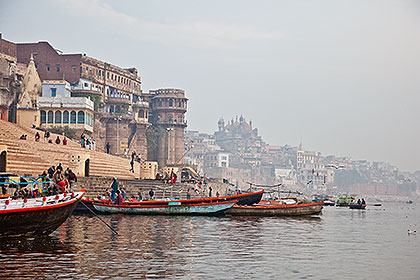
Sankatha Ghat (with steps, left) and Ganga Mahal Ghat.
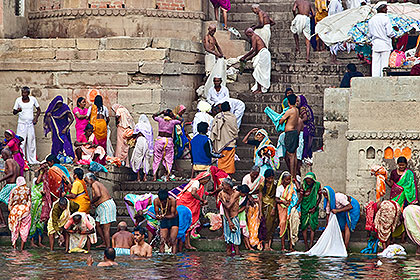
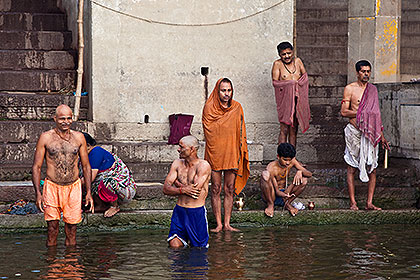
More bathers at the Scindia Ghat.
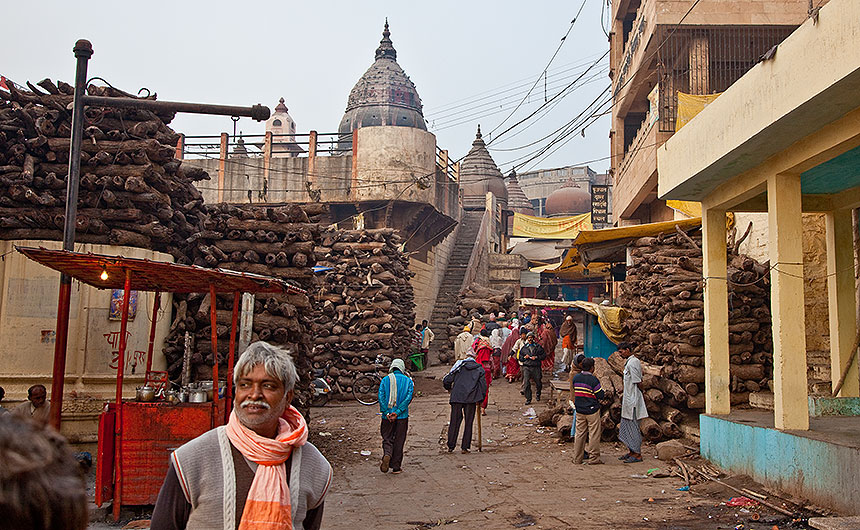
7:40AM: It is time for us to leave for our long bus trip across Bihar State to Bodh Gaya. We come ashore between the Scindia and Manikarnika Ghats, and pass by the huge piles of firewood on hand to fuel the cremation fires.